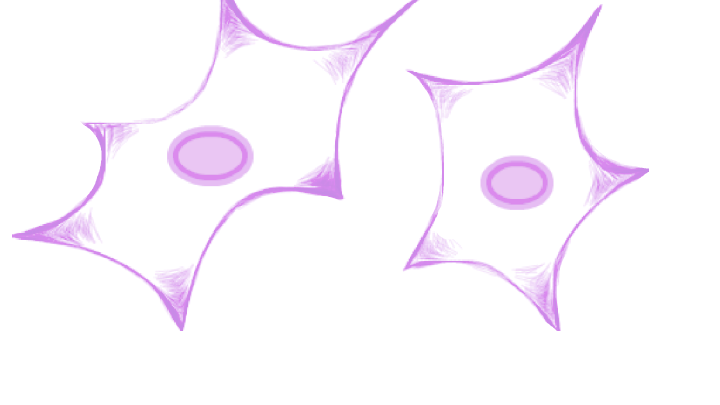Cell Senescence Entries for SRF
- Cell Types
- Coronary artery smooth muscle
- Cell Lines
- Primary cell
- Cancer Cell?
- Yes
- Method
- Knockdown
- Type of senescence
- Unclear
- Senescence Effect
- Inhibits
- Primary Reference
- Werth et al. (2010) Proliferation of human primary vascular smooth muscle cells depends on serum response factor. Eur J Cell Biol 89(2-3)216-24 (PubMed)
SRF Gene Information
- HGNC symbol
- SRF
- Aliases
- MCM1
- Common name
- serum response factor
- Entrez Id
- 6722
- Description
- This gene encodes a ubiquitous nuclear protein that stimulates both cell proliferation and differentiation. It is a member of the MADS (MCM1, Agamous, Deficiens, and SRF) box superfamily of transcription factors. This protein binds to the serum response element (SRE) in the promoter region of target genes. This protein regulates the activity of many immediate-early genes, for example c-fos, and thereby participates in cell cycle regulation, apoptosis, cell growth, and cell differentiation. This gene is the downstream target of many pathways; for example, the mitogen-activated protein kinase pathway (MAPK) that acts through the ternary complex factors (TCFs). Two transcript variants encoding different isoforms have been found for this gene. [provided by RefSeq, May 2014].
SRF Ontologies
- Gene Ontology
-
Process: GO:30036; actin cytoskeleton organization
GO:45893; positive regulation of transcription, DNA-templated
GO:45944; positive regulation of transcription by RNA polymerase II
GO:48513; animal organ development
GO:1569; branching involved in blood vessel morphogenesis
GO:1701; in utero embryonic development
GO:1707; mesoderm formation
GO:1764; neuron migration
GO:1947; heart looping
GO:2011; morphogenesis of an epithelial sheet
GO:2042; cell migration involved in sprouting angiogenesis
GO:2521; leukocyte differentiation
GO:3257; positive regulation of transcription from RNA polymerase II promoter involved in myocardial precursor cell differentiation
GO:6355; regulation of transcription, DNA-templated
GO:7015; actin filament organization
GO:7160; cell-matrix adhesion
GO:7369; gastrulation
GO:7507; heart development
GO:7616; long-term memory
GO:8285; negative regulation of cell population proliferation
GO:8306; associative learning
GO:10669; epithelial structure maintenance
GO:10735; positive regulation of transcription via serum response element binding
GO:21766; hippocampus development
GO:22028; tangential migration from the subventricular zone to the olfactory bulb
GO:30038; contractile actin filament bundle assembly
GO:30155; regulation of cell adhesion
GO:30168; platelet activation
GO:30220; platelet formation
GO:30336; negative regulation of cell migration
GO:30878; thyroid gland development
GO:30900; forebrain development
GO:31175; neuron projection development
GO:33561; regulation of water loss via skin
GO:35855; megakaryocyte development
GO:35912; dorsal aorta morphogenesis
GO:43149; stress fiber assembly
GO:43589; skin morphogenesis
GO:45059; positive thymic T cell selection
GO:45214; sarcomere organization
GO:45773; positive regulation of axon extension
GO:46016; positive regulation of transcription by glucose
GO:46716; muscle cell cellular homeostasis
GO:48538; thymus development
GO:48589; developmental growth
GO:48821; erythrocyte development
GO:51491; positive regulation of filopodium assembly
GO:55003; cardiac myofibril assembly
GO:60218; hematopoietic stem cell differentiation
GO:60292; long-term synaptic depression
GO:60324; face development
GO:60347; heart trabecula formation
GO:60425; lung morphogenesis
GO:60532; bronchus cartilage development
GO:60534; trachea cartilage development
GO:60947; cardiac vascular smooth muscle cell differentiation
GO:61029; eyelid development in camera-type eye
GO:61145; lung smooth muscle development
GO:70830; bicellular tight junction assembly
GO:71333; cellular response to glucose stimulus
GO:90009; primitive streak formation
GO:90136; epithelial cell-cell adhesion
GO:98609; cell-cell adhesion
GO:1902894; negative regulation of pri-miRNA transcription by RNA polymerase II
GO:1902895; positive regulation of pri-miRNA transcription by RNA polymerase II
GO:6357; regulation of transcription by RNA polymerase II
GO:51091; positive regulation of DNA-binding transcription factor activity
GO:90398; cellular senescence
GO:60055; angiogenesis involved in wound healing
GO:1666; response to hypoxia
GO:34097; response to cytokine
GO:1829; trophectodermal cell differentiation
GO:45597; positive regulation of cell differentiation
GO:9636; response to toxic substance
GO:9725; response to hormone
GO:45987; positive regulation of smooth muscle contraction
GO:48666; neuron development
GO:51150; regulation of smooth muscle cell differentiation
GO:60261; positive regulation of transcription initiation from RNA polymerase II promoter
GO:1900222; negative regulation of amyloid-beta clearance
Cellular component: GO:5737; cytoplasm
GO:5634; nucleus
GO:785; chromatin
GO:5654; nucleoplasm
Hide GO termsFunction: GO:5515; protein binding
GO:3677; DNA binding
GO:46983; protein dimerization activity
GO:3700; DNA-binding transcription factor activity
GO:981; DNA-binding transcription factor activity, RNA polymerase II-specific
GO:977; RNA polymerase II transcription regulatory region sequence-specific DNA binding
GO:978; RNA polymerase II cis-regulatory region sequence-specific DNA binding
GO:987; cis-regulatory region sequence-specific DNA binding
GO:1228; DNA-binding transcription activator activity, RNA polymerase II-specific
GO:3682; chromatin binding
GO:10736; serum response element binding
GO:31490; chromatin DNA binding
GO:42826; histone deacetylase binding
GO:43565; sequence-specific DNA binding
GO:61629; RNA polymerase II-specific DNA-binding transcription factor binding
GO:70878; primary miRNA binding
GO:140297; DNA-binding transcription factor binding
GO:1990837; sequence-specific double-stranded DNA binding
GO:42803; protein homodimerization activity
Homologs of SRF in Model Organisms
External links
- OMIM
- 600589
- Ensembl
- ENSG00000112658
- Entrez Gene
- 6722
- UniGene
- 520140
- 1000 Genomes
- 1000 Genomes
- HPRD
- GenAtlas
- SRF
- GeneCards
- SRF
